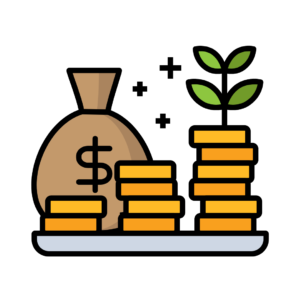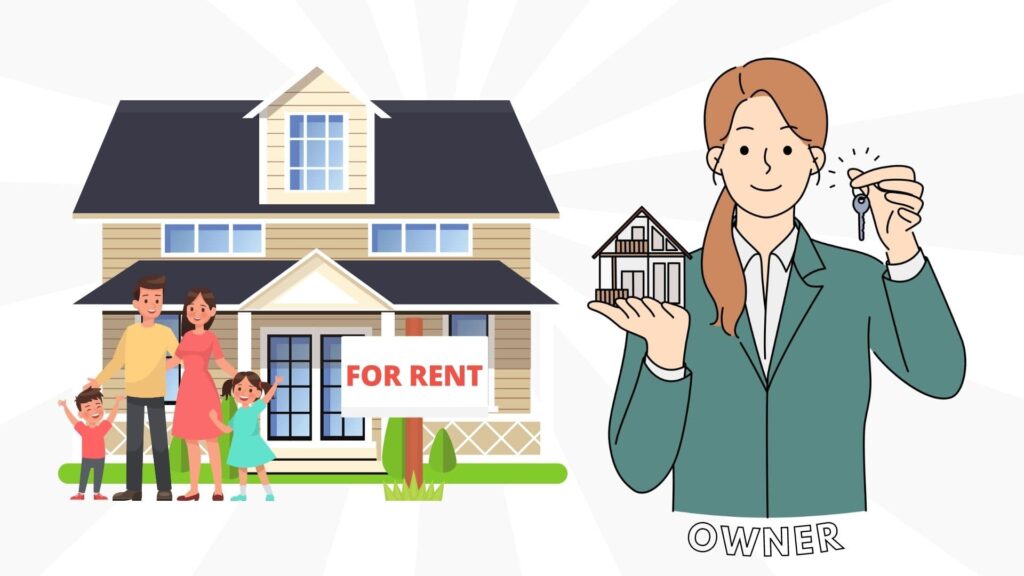
Sammie Ellard-King
I’m Sammie, a money expert and business owner passionate about helping you take control of your wallet. My mission with Up the Gains is to create a safe space to help improve your finances, cut your costs and make you feel good while doing it.

Quickfire Roundup:
If you’re looking to invest your savings, buy-to-let properties are surefire moneyspinners. Everybody needs a place to live, after all – and that’s unlikely to change any time soon.
While a buy-to-let property requires an initial investment, you could earn a steady profit from rental income in the following years.
However, there are several risks, costs, and drawbacks to be aware of. Timing is also crucial when it comes to investing in a buy-to-let.
If you’re wondering how to make money from buy to let, you’re in the right place.
First things first: investing in a buy-to-let property is very different from getting a mortgage on your first home.
Eligibility terms are totally different, and the size of your potential buy-to-let mortgage depends on how much you intend to charge for rent. Be prepared to pay a larger deposit, too.
My guide will explore all you need to know about entering the buy-to-let property market and making it work for you.
Table of Contents
How To Make Money From Buy To Let
To guarantee a profit, you must look at the following:
Research the area: Location is everything when it comes to rental properties. Good locations are even more important than good mortgage deals. Make sure the area is desirable and that the rent you’ll have to charge is justifiable, and make sure you understand what mortgage lenders look for.
Set goals: You need to determine what you want out of the buy-to-let mortgage; the deposit you’re willing to pay, the rental yield you want to make from it, and so on. Otherwise, you’ll settle for anything and potentially lose more money than you’ll make.
Define an exit strategy: Once you’ve made your capital gains and profited as much as possible, what happens to the property? Although it may seem like a far-off concern, defining your exit plan is essential to making the most money out of your property (and benefiting from tax relief, too).

How To Choose The Right Property
You need to make sure that your budget covers the deposit, agent fees, legal fees, maintenance, and other costs associated with purchasing a buy-to-let.
If you already own the properting then renting out on a normal mortgage is not permitted so you will 100% need a buy-to-let mortgage in place.
You also need to check how these costs size up with the estimated rental yield. This will reveal if it’s actually worth the investment.
Why Timing Is Crucial?
When house prices are high, investing in a buy-to-let would need to be viewed as a long-term investment. You may be better off investing in other areas and waiting for prices to fall again.
The amount you’d make back in income would unlikely come close to the amount of money you invested in the property.
If you’re looking for a faster return on your investment, you need to study the market and get your timing right.
House prices are predicted to fall in 2024 although this is far from guaranteed. The OBR expects this price decrease to be around 10%. If prices fall, you may be able to pick up a bargain.
What Things Do I Need To Look Out For?
No matter how well you time your property purchase, there will be risks and rewards at play.
Risks
The risk of an empty property – Your property’s location may suddenly become less desirable. This could mean having the property lying empty for more than a month.
Higher tax bill – If you own your own home, you’ll have a higher tax bill when you get a buy-to-let.
Property value drops – If your property’s value drops, so will your capital. If you have an interest-only mortgage, it also means your rental yield will reduce significantly.
Rewards
High rental yield – In major northern cities, such as Glasgow and Manchester, rental yields can be as high as 6.91%.
Capital growth – If the market improves, your asset value will increase, too. This would mean you could sell your property for more than you spent on it.
Insurance – It’s possible to get insurance coverage for rental income reductions, as well as legal costs associated with your property.

What Do Buy-to-Let Mortgages Cost?
You can expect to pay somewhere between 20% and 25% as a deposit for your buy-to-let. This is unlike residential mortgages, which sometimes ask for as little as 5% as a deposit.
In addition to a deposit, you’ll have to pay a stamp duty tax if the property value is more than £125,000. Standard stamp duty rates are as follows:
£125,001 – £250,000 – 2%
£250,001 – £925,000 – 5%
£925,001 – £1.5m – 10%
£1.5m+ – 12%
Boon Brokers are one of the UKs leading online mortgage brokers. They have a 5-star excellent Trustpilot rating with over 543 reviews.
- No mortgage fees
- Whole of market access
- Free online consultations
- Directly authorised by the FCA
- No in person meet ups
How Much Can I Make From Buy-to-Let?
As a general rule, your rental income should amount to between 125% and 145% of your mortgage interest repayment price. This depends on what kind of tax bracket you fit in: basic or high rate.
For example, if you’re a basic rate taxpayer and your monthly payments are £900, you’d have to charge £1,125 in rent. £1,125 equals £900 + £225 (25% of your mortgage interest repayment).
This means that through rental income, you’re able to pay off your buy-to-let mortgage and make a small profit each month. However, this profit will initially be used to reimburse the amount you paid for the hefty deposit.
To calculate your rental yield, divide your annual rental income by the property value, then times it by 100.

How Much Tax Do I Pay On Profits?
You are required to pay income tax for the rental income you make throughout the year.
If your rental income is between £12,571 and £50,270, you’ll pay 20% in tax.
If your rental income is between £50,271 and £149,999, you’ll have to pay 40% in tax.
You’ll also have to pay capital gains tax if you choose to sell the property. However, this is only if the property is worth more money than the price you paid for it. The capital growth is calculated once estate agent fees, solicitor fees, and stamp duty have been deducted.
You also get a tax-free allowance for capital gains of £6,000 (reduced from £12,300 as of April 2023).
As of 2022/2023, if your profit is greater than £12,300, your tax rate will be 18% if you’re a basic rate taxpayer. Higher rate taxpayers must pay 28%.
What To Look Out For As A Landlord
There are some factors you need to consider before becoming an official landlord and agreeing to a mortgage. First off, it’s essential to determine how much work the property will need and any potential maintenance you’ll have to provide.
Consider the following:
Property location: The location of the property determines the type of tenants you’ll attract. If you want to rent out your property to students, you’ll need to make sure it’s close to universities and colleges. If you want to rent out to a young family, you need to check to ensure the property is near schools and supermarkets.
Property age: A new property will likely need minimal maintenance; on old property, on the other hand, will likely require regular maintenance. The property’s age can also affect the buying price. Old buildings can sometimes be cheaper, but well-maintained vintage properties have a broader appeal. This factors into how much rent you can charge.
Visible signs of damage: In addition to judging the property’s age, you should check the house for any signs of mould, dampness, or leaks. There may be aspects that the previous landlord or estate agents are concealing from you. This will help you determine how much work the building will need before you turn it into a rental property.
Amenities: Property amenities obviously influence how much the property is worth. It can also impact how much you can charge in rent and the kind of tenants you attract.

FAQs
Can you live in your buy-to-let?
Private landlords cannot live in their own buy-to-let properties. Buy-to-let mortgages are specifically designed for homes you plan on renting out – not living in.
What are the property investment alternatives to buy-to-let?
Instead of buy-to-let, you could try investing in property crowdfunding, joint venture property investing, property bonds, or property unit trusts.
Conclusion
So, back to the question of how to make money from buy to let? – I hope this article has answered your question!
Navigating the buy-to-let market can be daunting for first-time buyers (and also if you are planning on buying and letting out a second home), but with enough guidance, it can be a profitable move.
Getting a buy-to-let mortgage is a great way to secure a valuable asset. It’s also a good means of building your wealth over time – especially if the property value increases after you buy it.
However, property investing can be risky territory, however; and it sometimes takes years to generate a profit.
Share on social media
Disclaimer: Content on this page is for informational purposes and does not constitute financial advice. Always do your own research before making a financially related decision.



